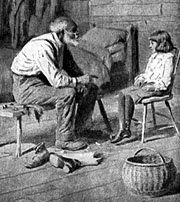I'm a little fed up with modern society and the notion that whatever anyone asserts as true is just to be swallowed as if it's all right. This way insanity lies. I'm forever having liberals assert something off the wall and then when you challenge them they assert it again as if an assertion is an argument or a basis for belief. Then if you continue to give examples that contradict them they go into the whiny name calling mode and classify you using slang, curse words, and derogatory labels some of which cannot be shared in polite company. (Is there anything anymore as polite company?)
The problem is that we have a whole class of people for whom the concept of "truth" fails to resonate. "That's your truth" they say when pressed because of some nonsense you are disagreeing with. But the problem is that there is no such thing as your truth and my truth, only truth. Why do I say that? My basic reason is that truth is another name for reality, what actually "is." Now we can talk about Bill Clinton who didn't know what "is" is. Bill was also characterized as one of the most accomplished liars to ever sit in the White House. Liberals tend to be that way. They view language, like the early sophists did, as a vehicle of persuasion and not a vehicle to convey truth.
So what is truth? Aristotle defined it this way:
“To say of what is that it is not, or of what is not that it is,
is false, while to say of what is that it is, and of what is not that
it is not, is true”
My short form is that Truth = Reality That seems short and succinct. I'll come back to this later.
Later has come and I want to add some further words about truth. When someone tells you something how do you know if it is true or not? That's a reasonable question right?
If they are a trusted friend you might just accept it because you've known them a long time and you've come to trust them. So the first answer is that you accept something as true by accepting the word of someone else because you trust them. Of course you might ask how do they know what they told you is true? The universal question is: How do you know that?
There are only two answers to the universal question. The first is that I know it from direct experience. The second answer is that someone I trust told me. So all truth depends upon direct experience either immediately or through a series of trust dependencies. This form of truth is about matters that can be directly experienced. There are other matters of more complexity that have to be analyzed and judged by an accumulation of experience and principles known to be true through confirmation by experience. All complex matters that can't be directly experienced have to be known in this more complex way.
This doesn't change the modes of knowing but the very complexity makes the knowledge more difficult to discern and be confident about. Just as an example we could ask: What is the best economic system? Now we are in rather a quandary. To start with we have to examine and define our terms to have any chance of a clear answer. It is a problem in modern discourse that people so seldom define their terms adequately. In this case we need to decide what we mean by an economic system and what we mean by best. Best could be the system that produces the most goods and services, or perhaps the cheapest goods and services, or the most accessible goods and services. The repetition of "goods and services" suggests, although we've not said so, that an economic system is a system that produces goods and services. I think you can see already that we have problems. Now we can make observations and unless these conform to an agreement about what we mean by our terms they may not even be the right observations.
We need principles to condition our discourse. The first principle is (1) define all your terms clearly. Clarity usually means not only clarity of definition but clarity of application. Use examples. A second principle seems important to me and that is (2) establish the relationship among all your terms. A third is (3) ensure that your view is complete by seeking and illuminating any hidden variables.
I think I'm going to stop here with a summary.
How do you know? Direct Experience or A Chain of Trust to Someone With Direct Experience
But this only in simple straight forward matters. In more complex matters it is essential to:
(1) Define all your terms
(2) Establish the Relationships Among Your Terms
(3) Ensure There Are No Hidden Variables
When you have done this you can begin your analysis. As you perform your analysis you need to constantly refer back to the three rules to make sure you've not added additional complexity to the matter as you explore it seeking the truth of the matter.
Tuesday, July 23, 2013
Subscribe to:
Post Comments (Atom)












No comments:
Post a Comment